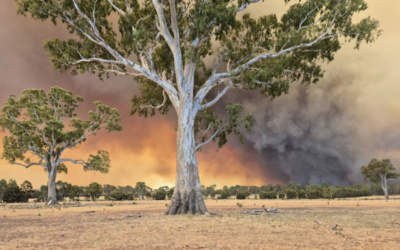 “Most folks tiptoe through life only to make it safely to death.” – Eleanor Roosevelt
“Most folks tiptoe through life only to make it safely to death.” – Eleanor Roosevelt
A woman I run with was telling me about her brother and sister-in-law’s fear that their two school aged children might be kidnapped. I asked if they were particularly wealthy, or if either of them had a job that might make him a prime target for would-be kidnappers. Apparently not. He works in I.T. for a small start-up company. His wife stays at home. But they do live in a village in upmarket Connecticut with many wealthy neighbors who, according to my running partner, are all equally concerned that their own children might be abducted. It all sounded, to my ears anway, rather absurd.
Don’t get me wrong here. I wouldn’t like my kids to get abducted. But I find it rather disturbing to hear that people are so concerned about it that they refuse to let their kids play in their ownback yard without supervision (lest someone jump over the fence and take them) and have to call them at regular intervals whenever they are away from their parents (i.e. at a friends home.) My experience over the years though has shown me that fear breeds fear. And that the conversations this couple have with their neighbors only only incites more fear in them, and they in turn in others. Fear is one of those highly contagious emotions that, left unchecked, can spread like a virus, and create incredible anxiety in those infected by it. Which, by the sound of it, is just what has happened to my friend’s family.
Fear is a highly contagious emotion that, left unchecked, can spread like a virus, and create incredible anxiety in those infected by it.
Fear on it’s own is neither good nor bad. It is a very natural emotion whose purpose is to alert us to potential threats to our safety and wellbeing. The problem is that too often we don’t assess whether those ‘threats’ are indeed genuine threats, or the impact that giving power to those fears can have on our life if left unchecked. In this case, fear of having their kids kidnapped undermines their ability to enjoy their children as much as they could, infuses their daily experience with needless anxiety, and robs their kids of the benefits that flow from being given independence and freedom. My guess is their kids are probably pretty fearful and anxious too. As I said, emotions are contagious.
But the life sucking impact of fear is obviously not confined to raising kids. It can impact us in how we interact with others in the workplace, whether we speak up about issues that concern us or we play it safe. It can impact the intimacy of our personal relationships, whether we make ourselves vulnerable and share openly our deeper thoughts and feelings, or keep up the facade of having it “all together.” It can impact our mental health (approximately 24 million adult Americans suffer anxiety in any given year and children suffering from anxiety is on an all time high). And it can impact our ability to live the rich lives we want because we settle for the status quo, afraid that we don’t have what it takes to pursue the goals that really excite us, that we might fail or look foolish in front of people we like to impress. And so, by default, fear leaves us tip-toeing timidly through life, avoiding any potential risks to our social status, our security and to our pride.
Unless you have turned off your TV and cancelled your newspaper subscription, then every day you are pummelled with reasons why you should feel afraid. Afraid of a retaliatory terrorist attack. Afraid of a tornado landing on your house. Afraid of child predators and online predators and viral predators. And while it’s important to notice what it is you are feeling fearful of, it is even more important to discern whether those fears are serving you (keeping you safe and healthy) or they are stifling you… holding you back from living your life fully.
In a letter to his father in 1950 Wilbur Wright wrote: “In flying, I have learned that carelessness and over-confidence are usually far more dangerous than deliberately accepted risks.” I let my kids out to play unsupervised in our backyard and cul-de-sac. I take them to public venues where predators sometimes lurk. I fly on planes, regularly. Twice across the Pacific and back before this year is through. And I open my front door to strangers, even one’s that racial profiling might tell me could be dangerous. Heck, I’m even writing another book that may win the criticism of people far and wide. And I do all of this not because I don’t know there’s a risk, but because I refuse to be held captive to my fears.
Fear can wield enormous power in our lives. If we let it. It can become a burial ground for unmet dreams, unfulfilled potential and for everyday joy that is taken from us as we anxiously worry what terrible thing might happen to us or those we love.
Fear can become a burial ground for unmet dreams, unfulfilled potential and for everyday joy that is taken from us as we fret about what awful fate might befall us.
Life’s too short to be lived biting your nails safely on the sidelines. Living courageously is not about living recklessly. Nor is it about living without fear or doubt or concerns of what might happen if you take a risk. It is simply about living with a commitment to doing and being something more than you already are; to feeling your fears and stepping forward anyway.
I have no idea if my friend’s brother and sister-in-law in upmarket Connecticut will ever read this. And if they do they may have all sorts of reasons why their fear is legitimate and well founded. But of course. You can always find reasons to justify your fearfulness if you want to. And so as I would ask them, I ask you, what toll is letting fear run your life having on your experience of life? If for one moment it feels too high, then make a decision: Leave it behind. Your life is far too short and too precious for you to tip toe any longer.






